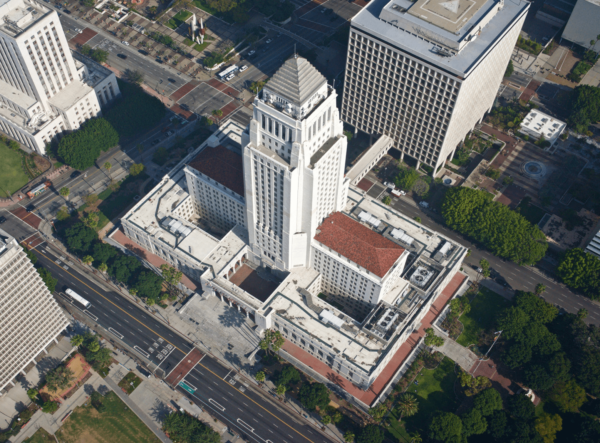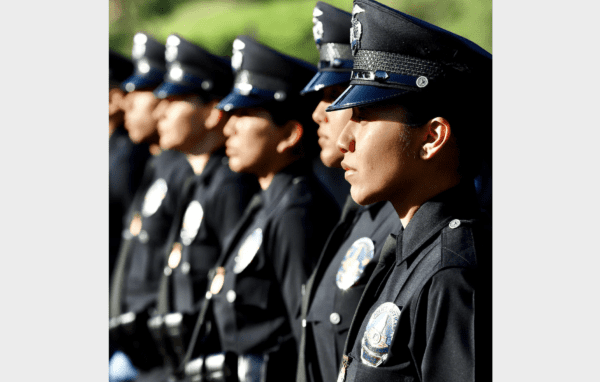A Los Angeles City committee continued to contemplate proposals for expanding the Council to better represent Angelenos, as well as reforming the city’s Ethics Commission and redistricting process, with final recommendations slated for adoption in mid-September.
The council’s Ad Hoc Committee on City Governance Reform met Thursday afternoon in the Council Chamber to hear presentations from academics and community groups on their recommendations for city governance. The committee convened for its first meeting after hosting four listening sessions in South LA, West LA, downtown LA and the San Fernando Valley.
Council President Paul Krekorian, who created the committee, said the purpose of the endeavor was to “deliver a number of different reforms around city government” with the two most compelling issues being “creating an independent redistricting commission and giving thorough consideration of reducing the size of council districts in order to make council members more responsive to the voters who elected them.”
He said the three presentations — from the Los Angeles Governance Reform Project, a group of academic experts; the Our LA Coalition, composed of organizations representing underrepresented communities; and Common Cause, a political reform organization — represent the “breadth of historic advocacy around this issue.”
John Wickham, an assistant chief legislative analyst who has been leading the city’s efforts to supply recommendations regarding governance reform joined the panel and will consider the information as he drafts recommendations for the committee at its next meeting, Aug. 28.
Krekorian said final recommendations will be slated for adoption by the committee on Sept. 18.
The Los Angeles Governance Reform Project called for the creation of two independent redistricting commissions to draw boundaries for the City Council and the Los Angeles Unified School District. The group also recommended the Council expand to include 25 members, four of which would be elected at-large, and adopt provisions to empower the city’s Ethics Commission.
Sara Sadhwani, assistant professor at Pomona College and a former state commissioner for the California Citizens Redistricting Commission in 2020, said the key to an “independent redistricting commission is removing the politics and having them separate from elected officials for whom they will draw those lines for.”
Criteria for redistricting commissioners should be wide, she said, including, but not limited to:
- Residents of the city of Los Angeles for at least three years;
- Prioritizing community engagement to solicit applicants;
- Not being an elected or former elected official or the spouse of one; and
- Consideration of donations to candidates for office.
Sadhwani recommended commission members serve 10-year terms and ensure there are alternates ready, and that some form of compensation be provided to increase accessibility for applicants with children or other household issues.
Raphael Sonenshein, executive director of the Pat Brown Institute for Public Affairs, briefly reviewed proposals for ethics reform. He said ethics reforms were “ripe in time,” adding the ethics structure was placed in the City Charter in 1990 by a commission that was created in the late 1980s.
“That’s 33 years ago, and in the long scheme of things, there’s parts of the charter that need to be revised and enhanced,” Sonenshein said. “It was really not timely to revisit either that or police reform, both which had been passed in the early 1990s. But as a result, the system hasn’t had a comprehensive examination of how it can be lean, effective, fair and transparent — not just for the community as a whole, but for elected officials themselves to know what is predictable and what is up to date.”
Council members were intrigued by the “hybrid model” of having at- large elected members. Krekorian noted “at-large members tends to take us backwards” to a time when citywide majority had a “disproportionate rule over policymaking.”
Fernando Guerra, a professor at Loyola Marymount University, said that in Los Angeles the three at-large offices — mayor, city attorney and city controller — have shown the “proclivity to have an at-large system where many minorities have been elected.” Though he recognized that the sample size of the study is “very small” and that each election is unique. Further research is still necessary, he added.
Representatives from Our LA Coalition shared their findings, which focused on responses from the city’s various communities.
The group recommended that city officials waive credentials such as higher education or language spoken from preventing Angelenos from serving on the independent redistricting commission.
They also encouraged the Council to consider applicants with a record of civic engagement, but not exclusively limited to voting in elections. The group suggested the Council expand to 23 to 31 single-member districts.
There was a discussion of possibly having two elected officials for each district. Our LA Coalition’s recommendations came from Angelenos across the city, who participated in workshops addressing governance reform.
Common Cause recommended expanding the Council to 26 members with each district representing 150,000 people. Representatives agreed that independent redistricting commissioners should serve for 10 years, and reiterated the importance of establishing a clear purpose to guide their work.
The Ad Hoc Committee on City Governance Reform will consider the information presented Thursday as it moves forward in drafting and approving recommendations for the full Council.
The committee was created by Krekorian in response to a leaked racist audio recording in October 2021, in which former Council members and a top county labor official discussed manipulating the redistricting process.







